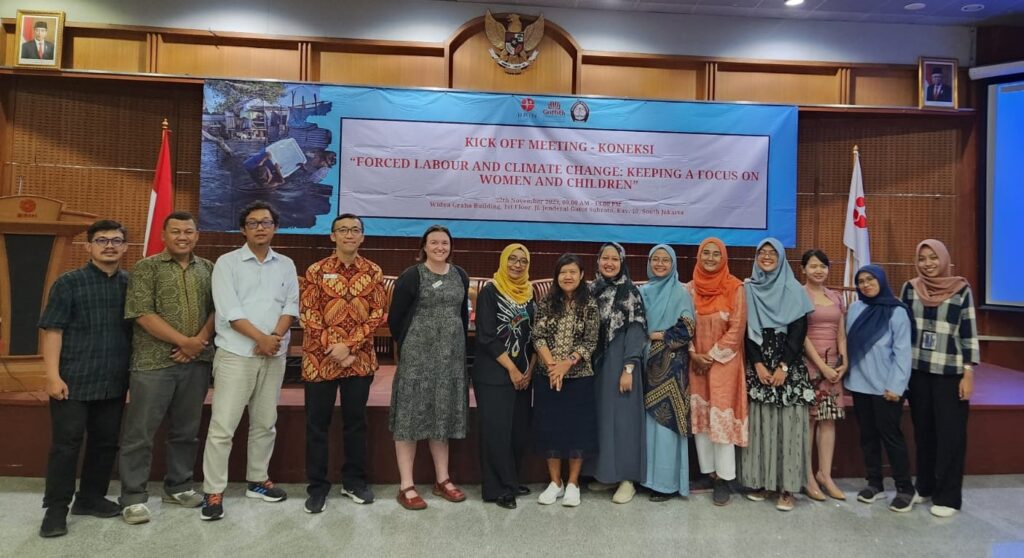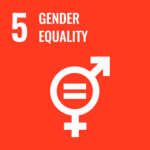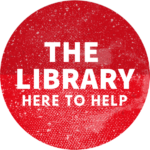In our second Researcher Profile for the year, we found out more about the research of Dr Amy Young. Amy is a Research Fellow with Griffith’s Disrupting Violence Beacon. Her research is focused on all areas of violence prevention, including child rights, gender-based violence, and domestic and family violence.
What path led you to your research?
‘I’ve always been motivated by wanting to make a difference in people’s lives, through using research to amplify the voices of groups who are often unheard or underrepresented in decision-making.’
I started as an undergraduate student in anthropology, before undertaking a PhD in social work focusing on child participation and wellbeing in Brunei Darussalam. I’ve always been motivated by wanting to make a difference in people’s lives, through using research to amplify the voices of groups who are often unheard or underrepresented in decision-making. I see research as having a role in relaying these narratives, and in activism and advocacy. I have always wanted to work internationally.
Can you tell us a bit about the projects you are currently working on?
One of the great aspects of working in the Disrupting Violence Beacon is the range of projects that we work on, the wide lens we apply to violence and our intersectional focus.
Currently, I am leading a project collaboratively with partners from Indonesia. We are looking at the intersections of forced labour and migration due to climate change. Our focus is specifically on the experiences of women and children living in areas vulnerable to sea-level rise. The project aims to foster connection between researchers in Australia and Indonesia working on the social impacts of climate change. This is part of a wider focus in the Beacon on climate change and violence.
I am also interested in innovative responses to domestic and family violence (DFV). As part of this, I am working with Griffith’s MATE Bystander team to develop a whole of community response to DFV that empowers community to lead primary prevention in their community. Community leaders in Mudgeeraba, the Numinbah Valley and surrounds on the Gold Coast are taking part in the pilot. We have also just completed phase 1 of our evaluation of the Be there app. The app aims to provide users with the tools to support a friend, family or community member who is experiencing DFV.
My work in domestic violence also includes working with men who are using violence. I am currently embedded as a researcher in a local service to assist in designing, piloting and evaluating a short-term intervention to engage men.
Finally, I am working with Dr Ana Borges Jelinic on understanding the responses of young people from culturally and linguistically diverse and migrant backgrounds who are using violence in the home. This project gives us an opportunity to learn from the experiences of workers on the ground, and build knowledge and support. A lot of my research is applied, with a strong fieldwork focus, which keeps me out and about in the community.

Supplied: Dr Amy Young
Who has inspired you?
I have been inspired by everyone who I work and collaborate with at Griffith, especially those from the Disrupting Violence Beacon and MATE teams. Our Co-Directors, Prof Elena Marchetti and Prof Patrick O’Leary do amazing work that combines research and advocacy in the pursuit of justice and violence prevention.
Shaan Ross-Smith, Kirsty Tschirpig and the MATE team are inspiring in the energy they bring to creating respectful relationships and workplaces, and in their commitment to partnering with researchers. I also really respect Prof Jennifer Boddy’s work on green social work, and Prof Donna McAuliffe’s on social work ethics. I’m also inspired by the practitioners we partner with in our work.
What advice would you give to researchers just starting out?
I worked on a wide range of projects as a research assistant early in my career and this allowed me to find areas of research that were meaningful to me. I never would have thought that I would enjoy engaging men around their use of violence based on the job ad, but in doing the research work I have found that it is an area I enjoy researching in. Working on a diversity of projects has also been useful in my research as it lets me identify connections between topics and bring in different perspectives.
It is also valuable to publish in a variety of formats so your work can reach different audiences. There is real interest in the community about the work we do, so it’s important that it reaches them in a way that is accessible and engaging.
I love talking about all the projects I work on, so please reach out if you would like to hear more, connect or collaborate at [email protected].
Get started with the Be there app
Be there is a free app that gives you direct access to tools that empower, educate and support you to help someone who is experiencing domestic or family violence.
Find out more and get started by visiting the Be there app website.
Griffith is proud to produce world-class research contributing to the Sustainable Development Goals







